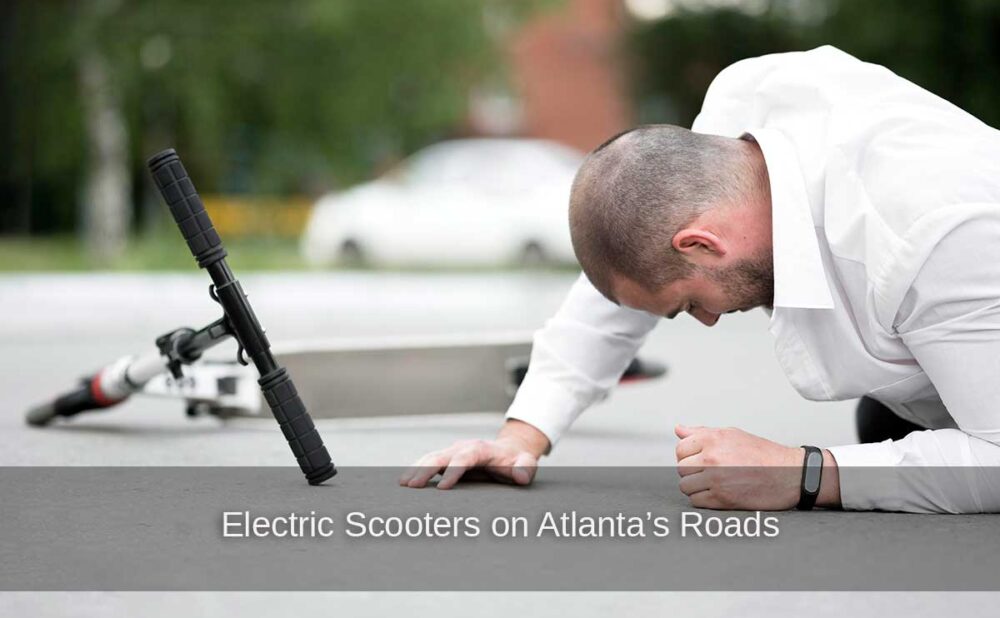Electric Scooters on Atlanta’s Roads — Navigating the Urban Landscape
Electric scooters have become a prominent feature of Atlanta’s urban mobility scene, offering residents and visitors a convenient and eco-friendly alternative to traditional transportation. As these devices proliferate across the city, understanding their usage, regulations, and impact is essential for both riders and the broader community.
The Rise of E-Scooters in Atlanta
Atlanta’s embrace of electric scooters has been marked by significant adoption rates. In 2025 alone, Lime reported over 594,000 trips taken on its electric fleet, with e-scooters accounting for approximately 527,000 of those rides. This surge in usage highlights the growing preference for micromobility solutions in urban environments.
Legal Framework and Safety Regulations
Operating an electric scooter in Georgia is permissible for individuals aged 15 and above. However, riders under 16 are legally required to wear a helmet. Authorities strongly encourage the use of helmets for safety reasons for those 16 and older.
Riders must adhere to several key regulations:
- Designated Riding Areas. Riders should ride scooters on roads, bike lanes, or multi-use paths. Authorities prohibit riding on sidewalks in business districts to ensure pedestrian safety.
- Speed Limits. Scooters are generally limited to a maximum speed of 15 mph. Exceeding this limit can lead to recklessness and can affect liability in the event of an accident.
- Parking Regulations. Improperly parked scooters that obstruct sidewalks, driveways, or building entrances can cause accidents and injuries, leading to potential liability for the rental company.
- Nighttime Riding Restrictions. As of late 2024, people cannot rent e-scooters and e-bikes from 2am to 4am. This adjustment aims to balance safety concerns with the demand for flexible transportation solutions.
The BeltLine: A Hub for E-Scooter Activity
The Atlanta BeltLine, a 22-mile loop of multi-use trails, has become a central hub for scooter use. Riders appreciate the scenic routes and accessibility of these pathways, which allow them to avoid the dangers of navigating congested streets. However, the surge in micro-mobility users has also raised concerns about safety and the risk of collisions with pedestrians, cyclists, and other scooter riders.
To ensure safety and enjoyment for all users, BeltLine officials emphasize the importance of proper etiquette:
- Stay Alert. Stay aware of your surroundings and use the space thoughtfully.
- Stay Right. Keep to the right side of the path to allow others to pass safely.
- Announce Your Presence. Use a bell or verbal cue when overtaking pedestrians or other riders.
- Step Off When Stopping. If you need to pause, step off the path to avoid obstructing others.
By following these guidelines, everyone can contribute to a safer and more enjoyable experience on the BeltLine.
Economic and Environmental Impacts
The proliferation of electric scooters offers several benefits:
- Reduced Traffic Congestion. By providing an alternative to car travel, e-scooters can help alleviate traffic congestion in urban areas.
- Lower Emissions. As electric vehicles, scooters contribute to reduced air pollution compared to traditional gasoline-powered vehicles.
- Cost-Effective Transportation. Scooter rentals offer an affordable option for short trips, especially for individuals who do not own vehicles.
However, challenges remain:
- Safety Concerns. Despite regulations, accidents involving scooters continue to occur, raising questions about rider safety and infrastructure adequacy.
- Infrastructure Limitations. The existing roadways and bike lanes may not be sufficient to accommodate the increasing number of scooter riders, leading to potential conflicts with other vehicles and pedestrians.
- Regulatory Enforcement. Ensuring compliance with parking and riding regulations requires consistent enforcement and public awareness efforts.
Looking Ahead
Atlanta continues to integrate electric scooters into its transportation landscape. Officials need to address safety, infrastructure, and regulatory challenges. Collaboration between city officials, scooter companies, and the community will be essential to create a sustainable and safe environment for all road users.
For more information on scooter regulations and safety tips, visit the Atlanta Department of Transportation’s official page.





